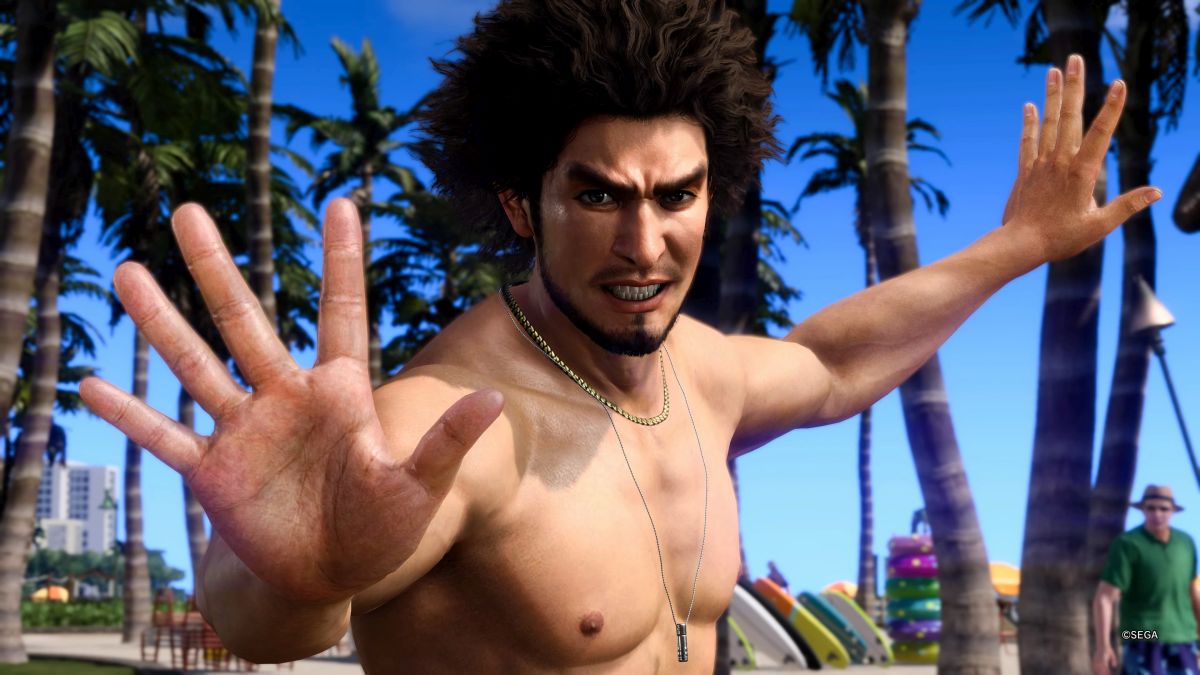Ryu Ga Gotoku Studio reset its flagship series with Yakuza: Like a Dragon, an aptly named title that saw newcomer Ichiban Kasuga take the lead in RPG hero fashion. With Like a Dragon: Infinite Wealth, RGG returns to the role-playing formula, with one foot in the future and the other in the past.
While Ichiban is back to lead, his predecessor Kazuma Kiryu returns, too. At first, the duo form a party together and then, eventually, split into two parties with each protagonist as their own leader. And while I dig a lot about what this does for the story, and the ways in which RGG Studio has clearly upgraded its blueprint from Y:LAD, it’s hard not to notice the stumbles it makes along the way.
Like a Dragon: Infinite Wealth is absolutely massive. It is a transition period for the series, moving all its characters around and building on their stories, while also creating the largest world I’ve yet to see in one of Ryu Ga Gotoku’s games. Infinite Wealth nails so many high points, but vast excess can come at a cost.
Like a Dragon: Infinite Wealth (PC, PS4, PS5 [reviewed], Xbox One, Xbox Series X|S)
Developer: Rya Ga Gotoku Studio
Publisher: SEGA
Released: January 26, 2023
MSRP: $69.99
The introduction sequence for Like a Dragon: Infinite Wealth is, quite honestly, fantastic. Starting out, directly after the events of Yakuza: Like a Dragon, we see Ichiban and the crew trying to enjoy a normal life after the Great Dissolution and ensuing drama. Ichiban does his best to support the rudderless yakuza struggling to earn a living as civilians, while also endearingly struggling in his own way, especially in the romance department.
It’s not long, though, until some ghosts of the past resurface. After bad actors rope Ichiban and co. into a sea of online controversy, our hero departs for Hawaii, where his long-lost mother, Akane, is thought to be hiding. Along the way, you’ll mostly hang out with familiar faces. Every cast member from Yakuza: Like a Dragon returns in some form, and the Geomijul’s Seonhee makes her playable debut in Infinite Wealth, alongside two newcomers: the compromised cabbie Eric Tomizawa and Chitose Fujinomiya, a maid Akane contracted for help.
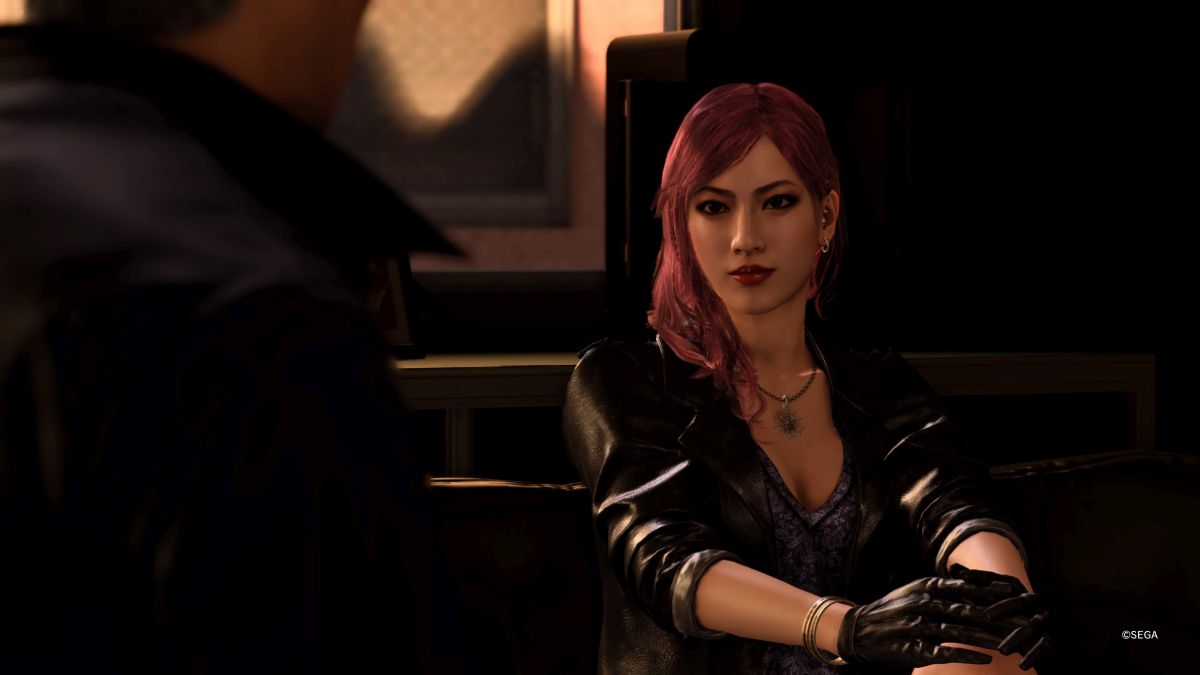
The story takes many, many twists and turns, and it wouldn’t really make sense to dig too deep into the specifics. Suffice to say, it doesn’t take long for a seemingly simple trip to Hawaii to escalate into the kind of antics you’d expect from Like a Dragon. Secret underground areas, sudden betrayals and double-crosses, and of course, shirtless fist fights with back tattoos bared are all part of the Yakuza charm, and none of that is missing here.
Some of Infinite Wealth’s highest highs are in these story moments, especially for the individual characters. Yakuza: Like a Dragon roped me in fast with its cast of older characters, going through extremely relatable life struggles amid all the chaos, and Like a Dragon: Infinite Wealth still captures that. Both Tomizawa and Chitose make excellent additions to the crew, while now-veterans Nanba, Saeko, and Adachi get plenty to work with, too. Heck, Joongi Han and Zhou – who arrive fairly late in Y:LAD – get plenty of character building in Infinite Wealth.
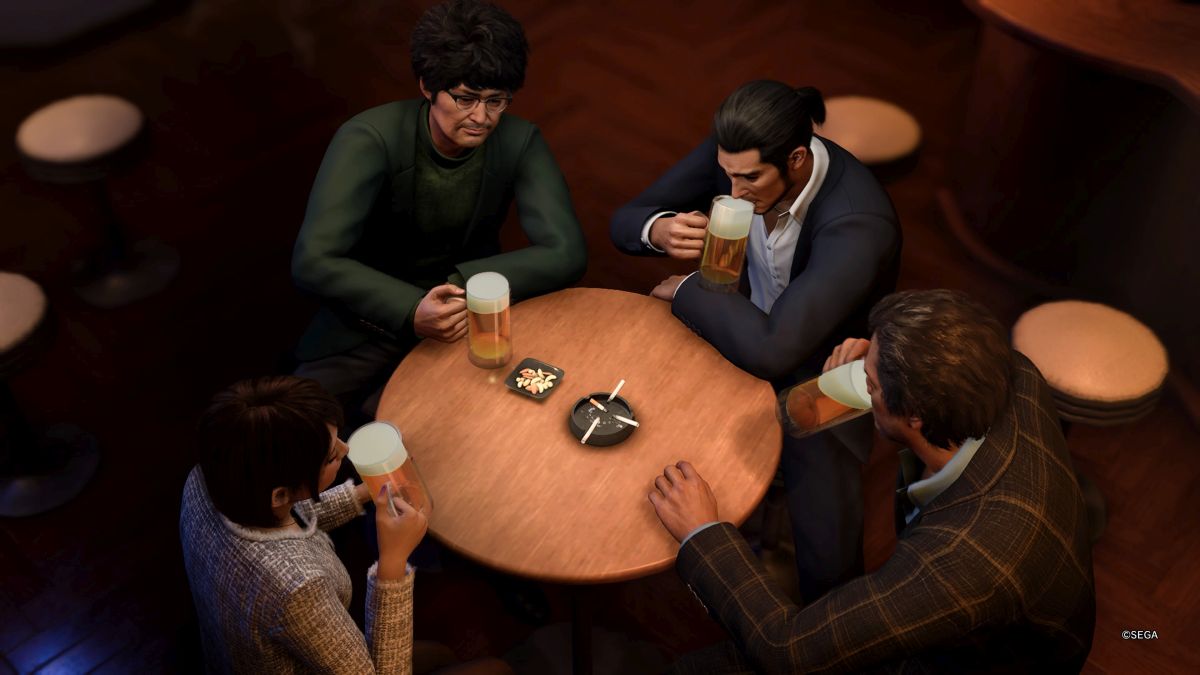
Let me buy you drink
Personalities and relationships really shine thanks to the Bond system, an overarching mechanic where party members can spend time with the protagonist to talk about their lives. Drink Links and growing Bonds are back, with truly great moments tucked away in those side stories. Characters like Seonhee and Tomizawa have especially effective moments in their Drink Links, adding intimate narrative details on the side while chipping away at the big picture.
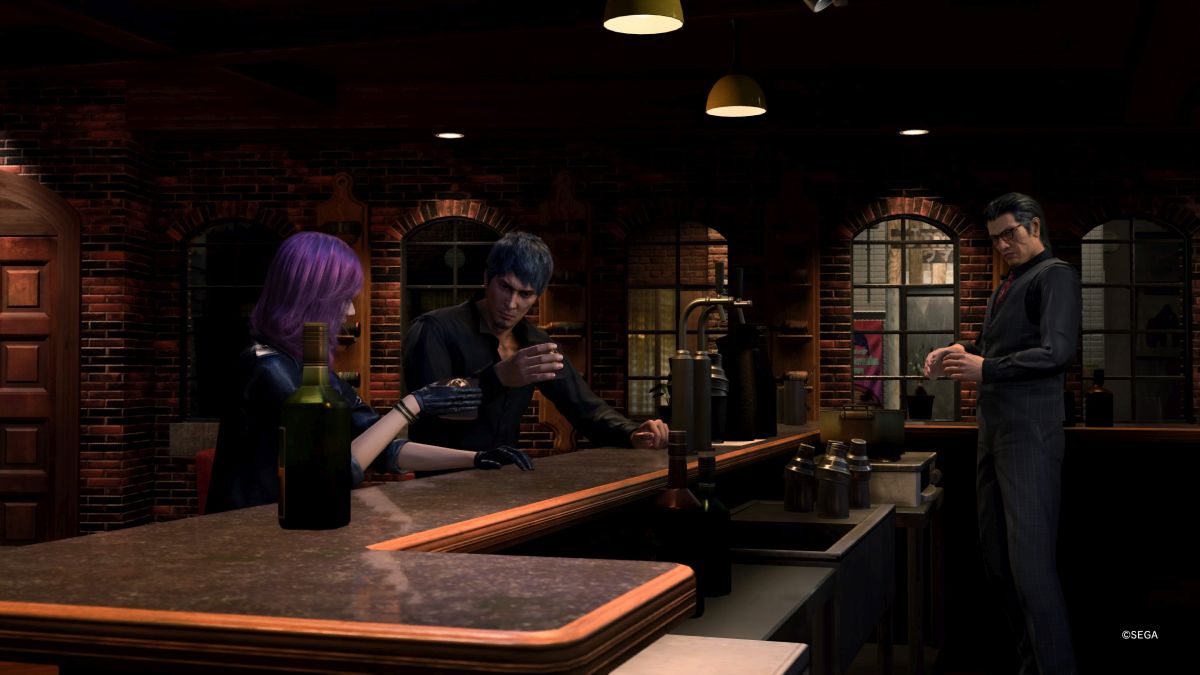
The addition of Bond Bingo also does a lot, dropping a bevy of spots around town where you can start up little skits. They’re framed as one of the party members taking note of something, like their favorite food or a place that reminds them of a particular memory, which gets marked off on a big bingo board. The goal is to form bingos and earn a ton of Bond progress, but you’ll make a lot of Bond progress just by playing the game; the real draw is the dialogue, which is pretty great.
All these ways of getting to know characters, with such a large cast, can feel a tad overwhelming. Really, splitting the party helps a lot in managing the sheer breadth of narrative content Like a Dragon: Infinite Wealth has. After some chapters together, Ichiban and Kiryu eventually split up and lead their own crews. The scope of the story ratchets up even further, as Kiryu starts to retrace his many, many steps through Ijincho and Kamurocho as part of his own journey, too.
As was revealed in the story trailer for Like a Dragon: Infinite Wealth, Kiryu has been diagnosed with cancer, and a major facet of his own journey sees him revisiting the past. Some of this means simply interacting with particular locations, where Kiryu can reflect on memorable events from previous Yakuza games, while others are much more involved quests.
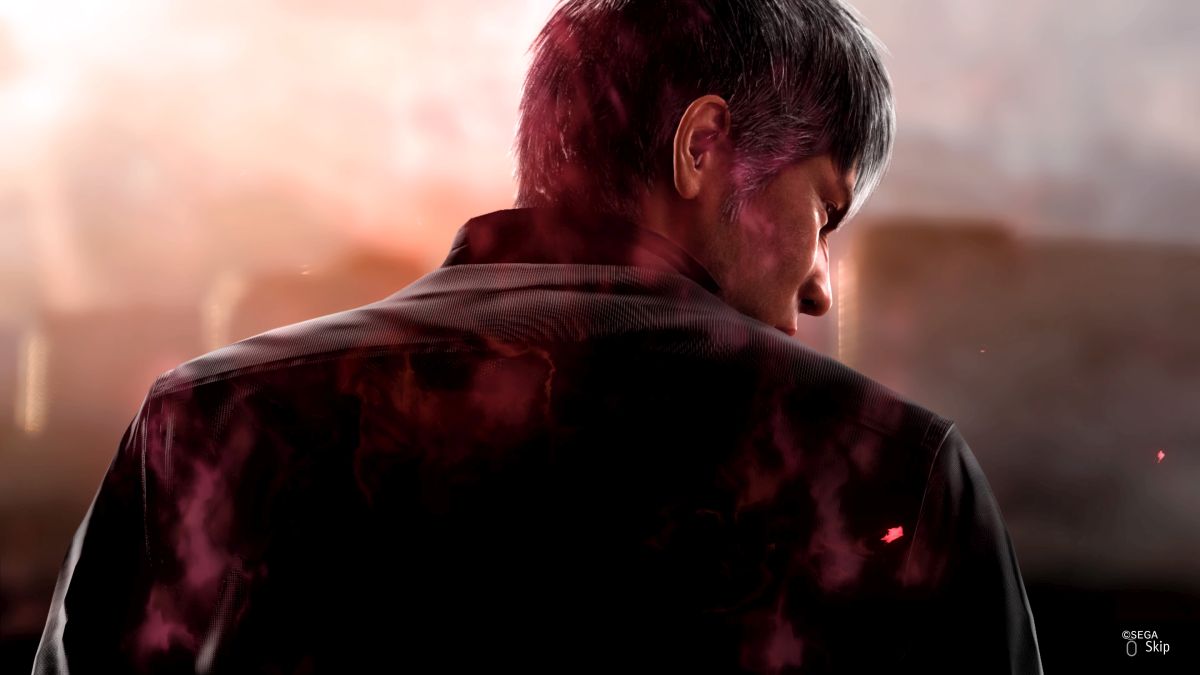
Limitless greed
Substories also return, growing quite lengthy in some cases, making for even more ways to lose track of the hours in Like a Dragon: Infinite Wealth. My map was constantly filled with icons noting activities I could take on, all of them building up the various numbers I had, whether it was my party’s level and stats, the money in my pockets, or all the different personality traits that Ichiban builds up over time.
I haven’t even broached the subject of some of the larger minigames. The monster-catching Sujimon minigame is back, with on-the-map raids similar to recent Pokemon titles. Trainers are all over Hawaii waiting for a challenge, and there’s even a story quest involving fighting the aptly named “Discreet Four.” Building up a potent Sujimon party and taking down the best trainers around is its own adventure.
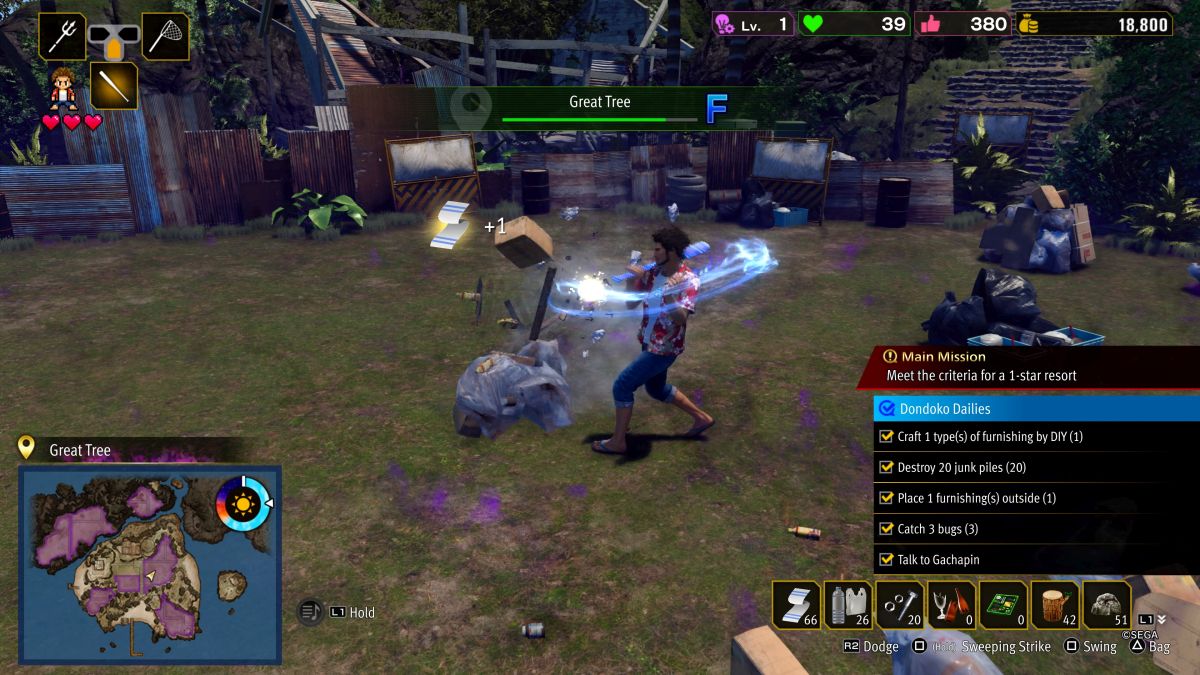
And then there’s Dondoko Island, Ryu Ga Gotoku’s version of Animal Crossing that has Ichiban cleaning up a trashed island and restoring it to resort status. It is, simply put, a really easy way to lose hours and hours of your time. I think I spent about three to four days of my review time with this game just on Dondoko Island, clearing out trash and building the island of my dreams. What was once a field with a single toilet in the middle of it soon became a bustling town, replete with food stalls and karaoke… and still, the toilet in the middle of it. It’s a landmark!
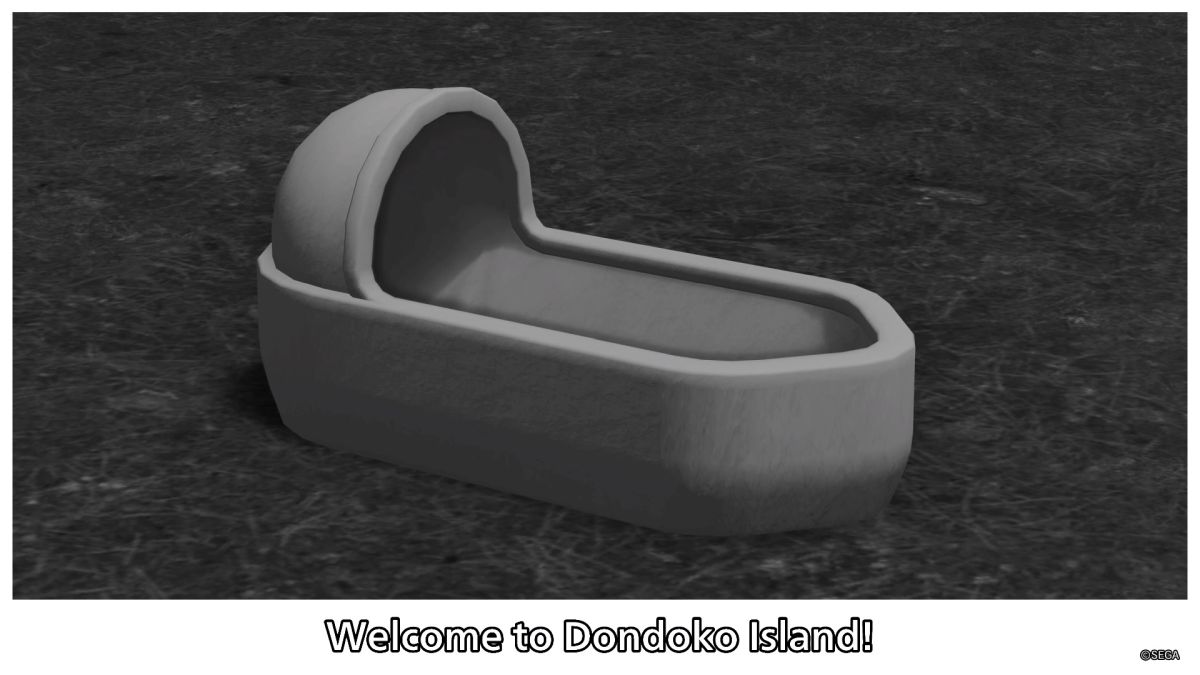
That said, it’s not all roses on Dondoko Island. The action combat doesn’t feel particularly great, and there’s a lot of it. And really, it’s a mode that feels like it’ll be best to revisit throughout the journey, rather than breeze through in one go. Eventually, visitors can start going to the island, and you’ll need to manage their wants and needs in an almost tycoon-style fashion. Getting some of the better, and more fun, visitors means finding them back in the open world of the main game, and progressing both the main story and various substories.
Plus, have I mentioned yet how big this world is? Not just with things to do, but in actual size. RGG added a segway for Ichiban and crew to travel around on, and really, it’s a helpful tool. Exploring the open world is highly encouraged; it’s where you grind battles for EXP and cash, it’s where you can hit the Square button (or your platform equivalent) to throw up the shaka and gain new friends to add more Aloha Links, and it’s where you stumble on items, substories, and more.
Even just Honolulu itself is big, and there’s still the addition of Ijincho and Kamurocho, too. It’s a hefty game, in all senses. You can throw darts, try your luck on a dating app, play shogi or blackjack or koi koi, and even play a bike delivery game with a bunch of nods to its Crazy Taxi inspirations. Heck, just go to an arcade and play Sega Bass Fishing or Spike Out, or play online matches of Virtua Fighter 3tb.
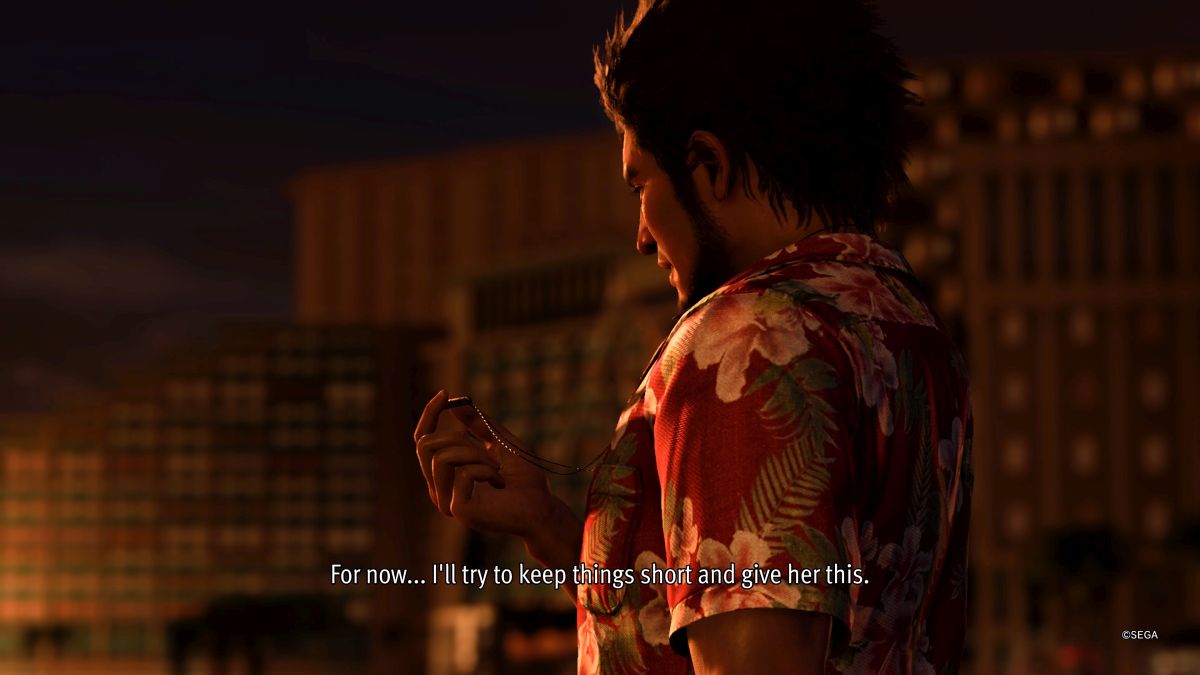
Big world, small people
I stress the expanse of Like a Dragon: Infinite Wealth because this series has, in its own way, always been big and full of strange side attractions. Yakuza is no stranger to odd side games that eat up tons of time, from taxi driving to cabaret management, and that knob is turned all the way to 11. Usually, the appeal of Yakuza is that it has all this ridiculousness, but underneath both the explosive action and excessive side activities, there’s a beating heart of characters and story. Infinite Wealth still has that heart, but it misses in some tangible places.
As I said before, each character gets their time in the spotlight. Ichiban felt a bit second-fiddle to Kiryu, whose history and legacy are felt throughout his sections, but even still, Kasuga is every bit the lovable Dragon Quest-obsessed guy that he was in his debut game. Moments of this game where we get to see characters from through its history, past and present, interacting are instant highlights.
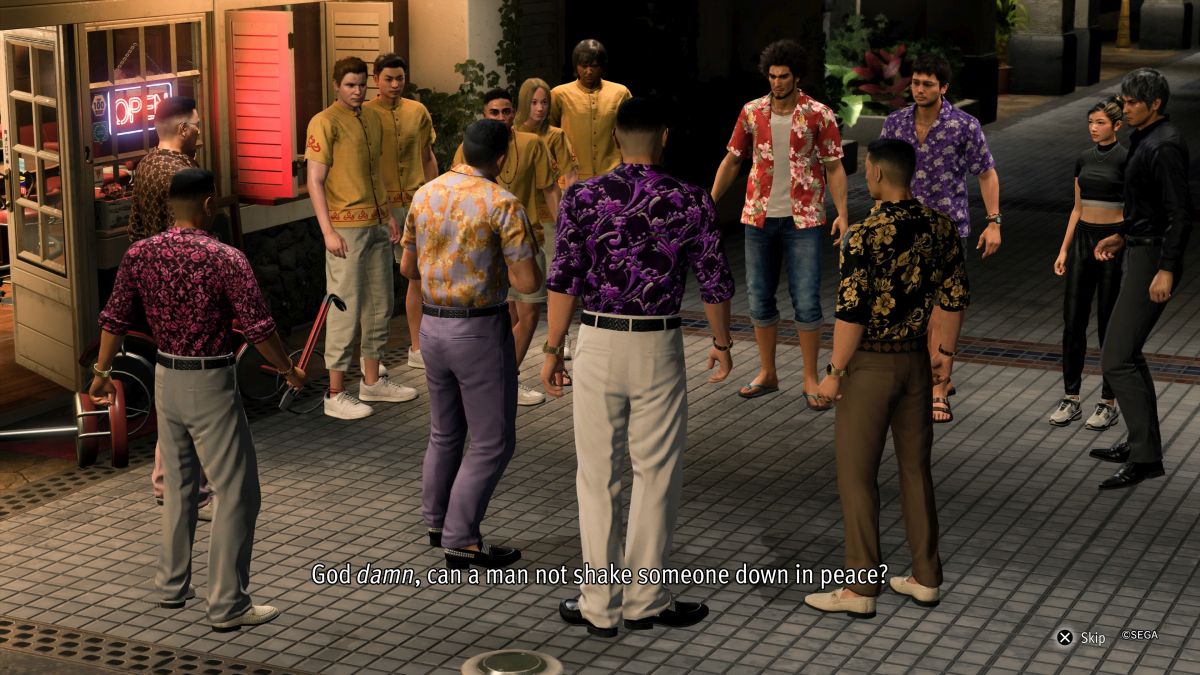
Like a Dragon: Infinite Wealth has a bit of a villain problem, though. Mostly in that its antagonists are both numerous, and aren’t quite as compelling or charismatic as the main cast. A few are your regular aggressors, the guys you fight a few times over the course of the game, and others are the ones waiting in the wings. But really, it felt like a few of the antagonistic forces just fall flat in the end.
This extends to the main plot, which can stifle a dramatic moment or two with some lackluster plot beats. Some characters and plot lines feel like they appear and disappear just for the benefit of moving the party from one location to another. I like the broad strokes of Like a Dragon: Infinite Wealth’s story, but it didn’t have that focused ramp-up I enjoyed in some of the series’ best narratives, like say, Yakuza 0 or Yakuza: Like a Dragon.
Ultimately, the best plot moments outside the chapter-ending climaxes are those Drink Links and side stories, where individual characters and stories can shine. The world of Like a Dragon: Infinite Wealth is huge, but it’s the moments that narrow down to a pinpoint that stuck with me most.
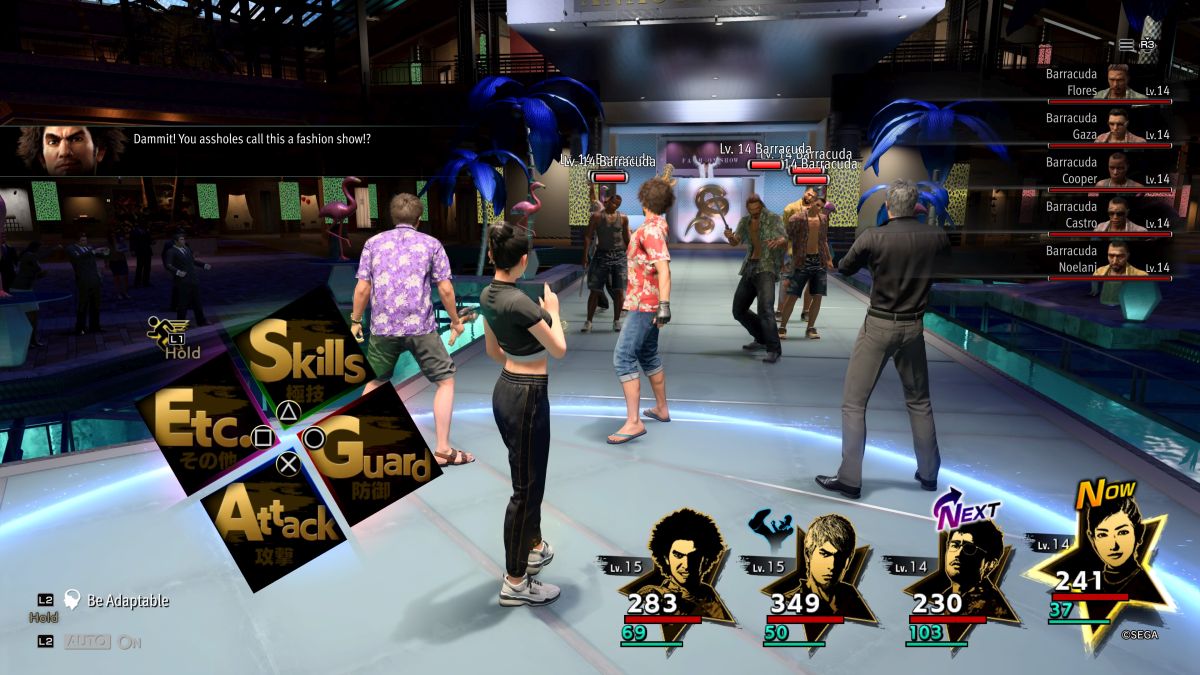
A second turn
When it comes to combat, Like a Dragon: Infinite Wealth shows that Ryu Ga Gotoku Studio must have been listening and taking feedback on Yakuza: Like a Dragon’s systems. Broadly, it feels like an upgrade in almost every way, while keeping much of the same spirit alive.
Characters can now move within a set range on their turn, eliminating some of the awkwardness around lining up attacks and AoEs. In fact, more movement – combined with the potency of knockbacks, back attacks, and other environmental enhancers – really makes the battles of Like a Dragon: Infinite Wealth feel more alive and active. I still had one or two moments where I was awkwardly trying to angle something just right, or would perform a knockback only for my teammate to watch the enemy fall down instead of adding a follow-up hit. But controlling the arena feels like a much more doable task in Infinite Wealth.
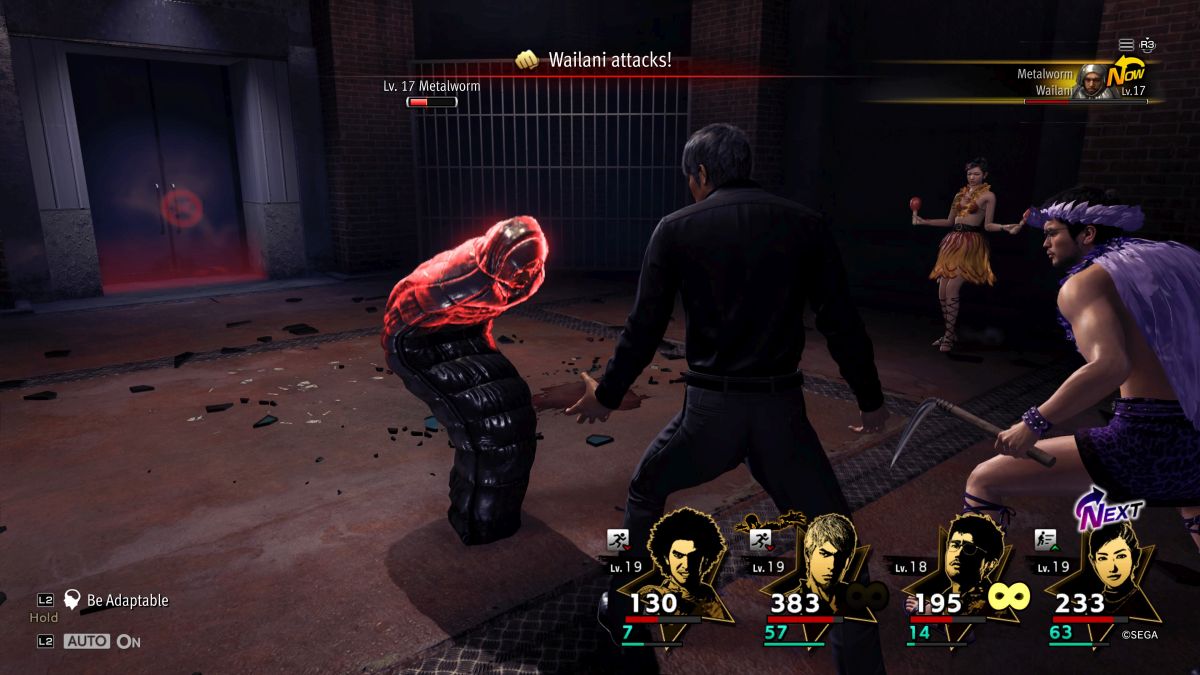
Additionally, the breadth of Tag Team and special moves, as well as the new jobs and Skill Inheritance system that lets job skills carry over, all form a wonderful playground for building a party. It’s still a pain to have to return to the job store – Alo-Happy, a tour company, in this game – to swap out roles. And it’s a real bummer that jobs are still gender-locked. While the guys have some support options, and the gals get one of my favorite new jobs in the Agility-focused Kunoichi, it still seems odd there aren’t some overlapping jobs between them. I don’t really see why Chitose can’t surf or shoot guns, or why Tomizawa can’t pick up the bucket and mop for a cleaning gig.
Still, battles in Like a Dragon: Infinite Wealth are extremely good, with plenty of wild characters to fight and tough bosses to take down. While there’s a small bit of relying on the hits later on, even the ways in which Infinite Wealth remixes expectations from Yakuza: Like a Dragon is really fun.
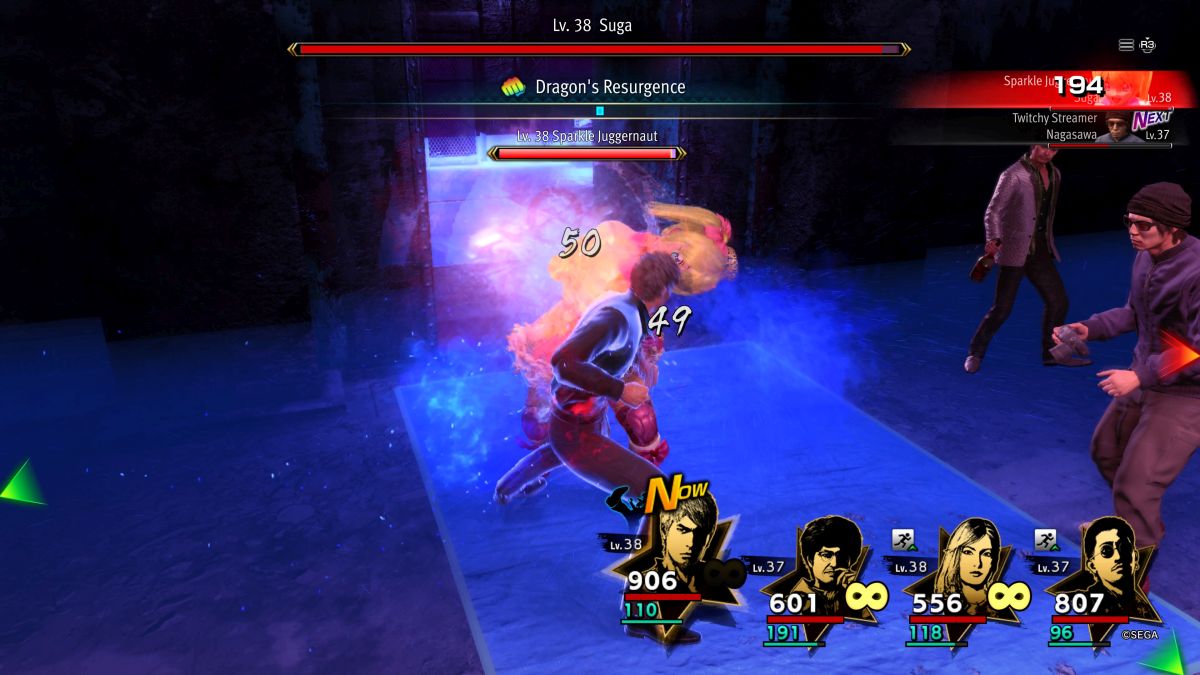
One of the best ways is Kiryu’s ultimate move, which lets him unleash the beast and lash out in beat ‘em up form, turning the turn-based RPG into a Yakuza brawler for a short span of time. It’s one of the cleverest mechanics in this game, that really shows how confident RGG feels with their RPG systems, and it’s used to incredible effect.
It’s a real testament that, even after rolling credits, I’m still eager to unlock more roles and grind out more challenges in the battle system. Where Yakuza: Like a Dragon certainly felt like a game that rewarded smart play and good planning, Like a Dragon: Infinite Wealth feels like RGG taking a system built on inspirations and confidently making it their own. There are still some wrinkles to iron out – please, add a way of opting out of weapon attacks in favor of basic strikes – but largely, RGG has the combat down on the second time around.
Material excess
I could go on for ages about the minutiae of Like a Dragon: Infinite Wealth. It is a huge game, brimming with things to do, in a way that’s honestly intimidating to properly assess. I’ve spent a little over 50 hours just seeing Infinite Wealth through to credits, and I have no doubt I could double or triple that time, digging into everything here.
Depending on who you are, that number can be appealing or daunting. While I certainly think you can see a good deal of Like a Dragon within a similar playtime, there are still aspects I had to put by the wayside for deadline; and adding that onto the count, it’s a whole lot of game to dig into. There are little contrivances that might grow or fade in that time, too; the Smackdown option for instantly winning battles against lower-level enemies is a great addition. But it also tries to mask that the world of Like a Dragon has a lot of wandering encounters that might interrupt whatever you’re trying to do, like a Bond Bingo chat or substory.
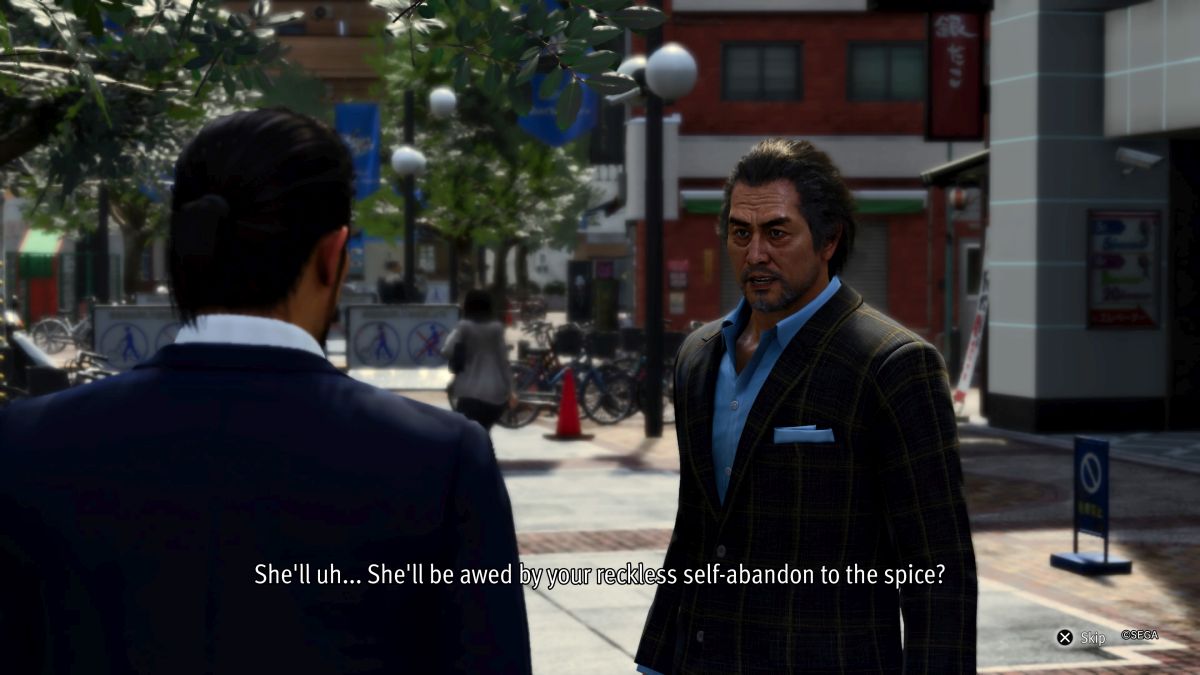
If you’re coming to Like a Dragon: Infinite Wealth for a massive RPG that packs in all that RGG Studio has ever offered into one package, this is that game. It’s titanic, yet it’s still got some character heart down below. And just the draw-in alone of seeing these characters laugh, learn, and fight alongside each other will be worth the ticket price for longtime RGG fans. I’d worry newcomers would feel quite lost at some points, even if they can broadly follow the story beats.
Yet I do still have some nitpicks and drawbacks, around the broad plot, the villains, and even how well some of the minigames stack up to others. (I found the Tinder-like dating app to be a really strange, opaque game compared to the relatively straightforward FMV dating in Like a Dragon Gaiden.) I really like broad pieces of this game, but with so much here, some portions feel way more fleshed out, and others feel like they drag the median down. Even the game’s conclusion ends rather abruptly, and with a bow-tie that feels a bit hastily wrapped.
Among the wealth of Like a Dragon games we’ve had over the last year or so, Like a Dragon: Infinite Wealth is easily the stand-out for me. It’s still got a lot of what I love from this series, and I think anyone looking for a good follow-up to Yakuza: Like a Dragon will find it here. The second time around doesn’t feel quite as revolutionary, but this is still an island vacation I wouldn’t turn down. Some time spent in the sun with Ichiban and crew is always time well spent.
[This review is based on a retail build of the game provided by the publisher.]
